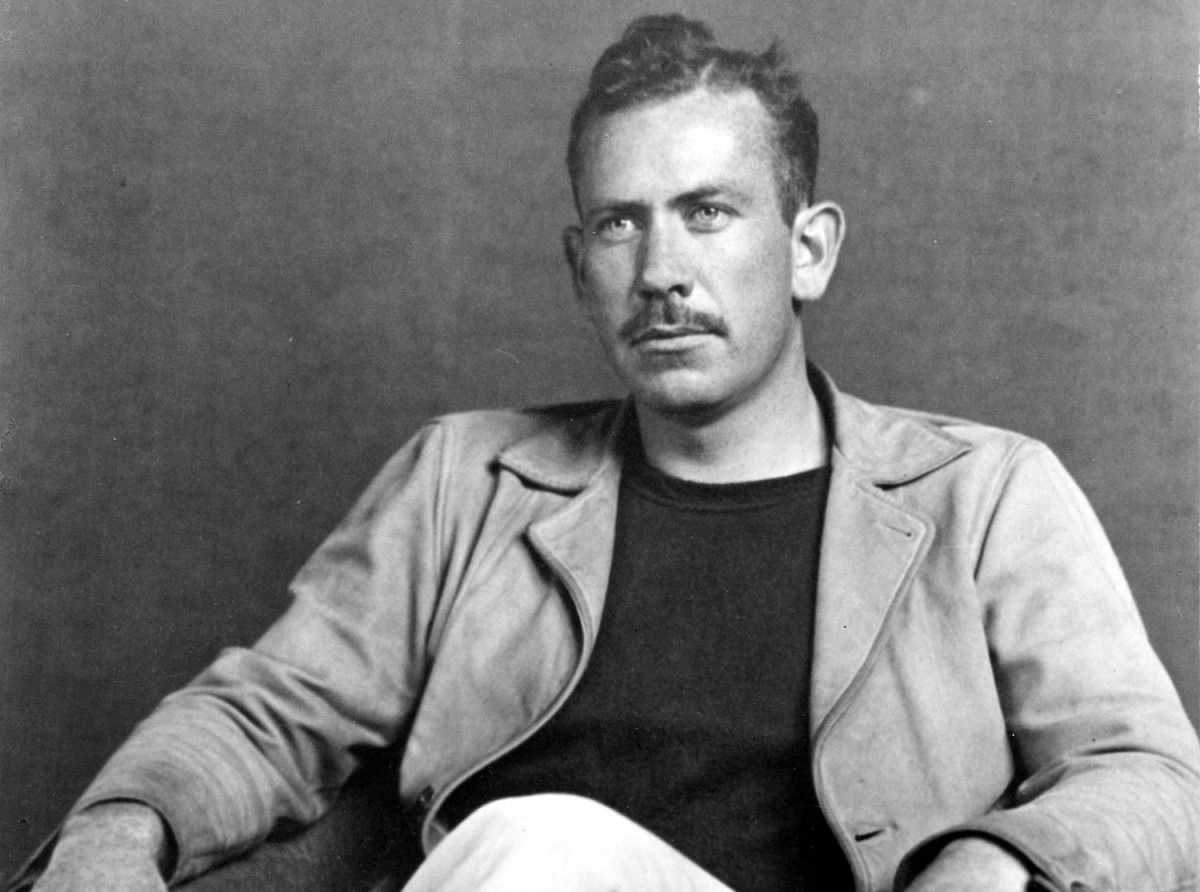L'escriptor nord-americà John Steinbeck va néixer el 27 de febrer del 1902 a Salinas i va morir el 20 de desembre del 1968 a Nova York. Fill d'immigrants alemanys i irlandesos als Estats Units, va guanyar el premi Nobel de Literatura el 1962. A part de les novel·les i dels guions de cinema, sovint escrivia cartes als amics, als editors, a la família. El 1958, quan Thom –el seu fill 14 anys– li va confessar per escrit que estava enamorat d'una noia que es deia Susan, ell li va respondre amb aquesta carta plena de tendresa i d'optimisme.

Foto: www.steinbecknow.com
Nova York
10 de novembre de 1958
Estimat Thom:
Hem rebut la teva carta aquest matí. La contestaré des del meu punt de vista i, per descomptat, l'Elaine ho farà des del seu.
Primer. Si estàs enamorat, és una cosa bona, potser és el millor que li pot passar a algú. No deixis que ningú hi tregui importància.
Segon. Hi ha diversos tipus d'amor. Un és egocèntric, mesquí, cobdiciós i utilitza l'amor per donar-se importància. Aquest és el tipus d'amor lleig i pobre. L'altre és una forma de despertar tot allò de bo que hi ha dins teu: l'amabilitat i la consideració i el respecte, no només el respecte social de les convencions, sinó també la forma més gran de respecte, que és el reconeixement de l'altra persona com a única i valuosa. El primer tipus d'amor et pot emmalaltir i empetitir i debilitar, però el segon et despertarà força, valor, amabilitat i fins i tot la saviesa que no sabies que tenies.
Dius que això no és un amor adolescent. Si el sents així de profund, per descomptat que no ho és.
Però no crec que m'estiguessis preguntant què és el que sents. Això ja ho saps tu millor que ningú. El que vols és que t'ajudi a saber què has de fer amb això que sents, i puc explicar-t'ho.
Celebra-ho i estigues alegre i agraït.
L'objecte de l'amor és el millor i més bonic. Prova de viure estant-ne a l'altura.
Si estimes algú –no hi ha cap mal possible a dir-ho– només has de recordar que algunes persones són molt tímides i que a vegades s'ha de ser conscient d'aquesta timidesa.
Les noies tenen una manera de saber o d'intuir el que sents, però normalment també els agrada escoltar-ho.
A vegades passa que el que sents no és correspost per una raó o per una altra, però això no fa que els teus sentiments siguin menys valuosos o bons.
Per últim, entenc el que sents perquè jo també ho sento, i estic content que tu també.
Estarem encantats de conèixer la Susan. Serà molt benvinguda. L'Elaine se n'ocuparà, perquè ella és qui en sap i estarà contenta de fer-ho. Ella també en sap, d'amor, i potser et podrà ajudar més que jo.
I no et preocupis per perdre'l. Quan alguna cosa ha de passar, passa. El que és important és no precipitar-se. Res de bo s'escapa.
Amb amor,
Pa.”
New York
November 10, 1958
Dear Thom:
We had your letter this morning. I will answer it from my point of view and of course Elaine will from hers.
First—if you are in love—that’s a good thing—that’s about the best thing that can happen to anyone. Don’t let anyone make it small or light to you.
Second—There are several kinds of love. One is a selfish, mean, grasping, egotistical thing which uses love for self-importance. This is the ugly and crippling kind. The other is an outpouring of everything good in you—of kindness and consideration and respect—not only the social respect of manners but the greater respect which is recognition of another person as unique and valuable. The first kind can make you sick and small and weak but the second can release in you strength, and courage and goodness and even wisdom you didn’t know you had.
You say this is not puppy love. If you feel so deeply—of course it isn’t puppy love.
But I don’t think you were asking me what you feel. You know better than anyone. What you wanted me to help you with is what to do about it—and that I can tell you.
Glory in it for one thing and be very glad and grateful for it.
The object of love is the best and most beautiful. Try to live up to it.
If you love someone—there is no possible harm in saying so—only you must remember that some people are very shy and sometimes the saying must take that shyness into consideration.
Girls have a way of knowing or feeling what you feel, but they usually like to hear it also.
It sometimes happens that what you feel is not returned for one reason or another—but that does not make your feeling less valuable and good.
Lastly, I know your feeling because I have it and I’m glad you have it.
We will be glad to meet Susan. She will be very welcome. But Elaine will make all such arrangements because that is her province and she will be very glad to. She knows about love too and maybe she can give you more help than I can.
And don’t worry about losing. If it is right, it happens—The main thing is not to hurry. Nothing good gets away.
Love,
Fa


